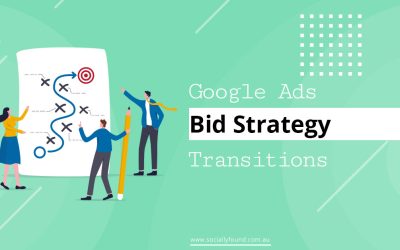Google Ads recommendations can offer several advantages, and in the fast-paced world of online marketing, efficiency and time management are crucial. Google Ads offers businesses the opportunity to reach a wide audience, but managing campaigns can be overwhelming.
This article explores the benefits and potential pitfalls of using these recommendations, emphasising the importance of careful review and monitoring.

First, they save time and effort by automating certain tasks that would otherwise need to be done manually. This allows marketers to focus on other aspects of their advertising strategy.
Additionally, these recommendations are based on data-driven insights from Google’s vast network, ensuring that they are tailored to specific campaign goals and objectives. By leveraging automation, businesses can potentially optimise their advertising efforts more efficiently than with manual adjustments alone.
However, it is important to consider potential drawbacks when relying on Google Ads recommendations. While automation can streamline processes, it may not always align perfectly with a business’s unique needs or strategies. Marketers must carefully review each recommendation before applying it blindly to ensure it aligns with their goals and brand identity.

Furthermore, constant monitoring is crucial to catch any unintended consequences or negative impacts on campaign performance.
In conclusion, exploring Google Ads’ automatically applied recommendations presents an opportunity for businesses to enhance their advertising strategy through automation and data-driven insights. However, caution must be exercised in reviewing and implementing these recommendations according to specific campaign objectives and brand requirements.
The following sections will delve deeper into best practices for maximising advertising success with Google Ads recommendations while emphasising the importance of ongoing monitoring and analysis for optimal results.
Key Takeaways
- Google Ads offers automated recommendations based on data-driven insights from Google’s network.
- Automation can optimise advertising efforts more efficiently than manual adjustments alone.
- Advertisers should exercise caution and evaluate each suggestion carefully.
- Regularly reviewing recommendations and implementing relevant ones is crucial for optimising advertising campaigns.
Understanding Google Ads Recommendations
Automatically applied recommendations in Google Ads are a data-driven approach suggested by Google to optimise ad campaigns. These recommendations can include actions such as adding negative keywords, adjusting bidding strategies, and enabling new features.
It is important for advertisers to carefully review these recommendations before enabling them, as Google is not always right in its suggestions. Additionally, monitoring the performance of these changes is crucial to ensure that they are effective in improving the overall campaign performance.
Google uses its vast amount of data and analysis to provide these recommendations. By leveraging machine learning algorithms and historical campaign data, Google can suggest optimisations that have proven successful in similar situations. However, it is essential for advertisers to exercise caution when implementing these recommendations, as blindly accepting all suggestions may not always lead to favorable results.
Advertisers should consider their specific goals and objectives when evaluating these recommendations and make informed decisions based on their own expertise and understanding of their target audience. Here is an overview of each recommendation and how it may affect your account and campaigns:
| Bidding | Description |
|---|---|
| Adjust your CPA targets | Modify your cost per action (CPA) targets to optimise your campaign’s performance and achieve your desired conversion goals. |
| Adjust your ROAS targets | Adjust your target return on ad spend (ROAS) to maximise the profitability of your advertising efforts and drive a positive return on investment. |
| Bid more efficiently with Maximise Click | Utilise the Maximise Click bidding strategy to optimise bids and increase the number of clicks your ads receive within your budget. |
| Bid more efficiently with Maximise conversions | Employ the Maximise conversions bidding strategy to automatically optimise bids and maximise the number of conversions for your campaign. |
| Bid more efficiently with target CPA | Optimise your bids based on a specific target cost per action (CPA) to achieve the desired conversion volume at a set cost. |
| Bid more efficiently with Target impression share | Utilise the Target impression share bidding strategy to optimise bids and maximise the visibility and share of ad impressions for your campaign. |
| Bid more efficiently with target ROAS | Optimise your bids based on a specific target return on ad spend (ROAS) to achieve the desired return on investment for your advertising efforts. |
| Biddable shop visits | Include shop visits as an account default goal in your campaign to track and optimise for in-store visits from online advertising efforts. |
| Maximise conversion value | Employ the Maximise conversion value bidding strategy to automatically optimise bids and maximise the total conversion value for your campaign. |
| Set a target CPA | Set a specific target cost per action (CPA) to optimise bids and achieve your desired conversion goals at a desired cost. |
| Set a target ROAS | Set a specific target return on ad spend (ROAS) to optimise bids and maximise the return on investment for your advertising efforts. |
| Set a bidding strategy target | Establish a target for your bidding strategy to guide optimisation efforts and achieve specific goals, such as a target CPA or ROAS. |
| Add shop visits as an account default goal | Include shop visits as a default goal for your account to track and optimise for visits to physical store locations resulting from your ads. |
| Keywords & Targeting | Description |
|---|---|
| Add audiences | This feature allows you to add specific target audiences for your advertising campaigns. |
| Add audience segments for reporting | You can add audience segments to analyse and report on the performance of different audience groups. |
| Add broad match keywords | By adding broad match keywords, you can expand the reach of your ads to show for a wider range of search terms. |
| Add dynamic search ads | Dynamic search ads use content from your website to automatically generate headlines and target relevant users. |
| Add keywords | This feature enables you to add specific keywords to target in your advertising campaigns. |
| Add keywords (Smart bidding) | You can add keywords and utilise Smart Bidding strategies to optimise your bidding for better ad performance. |
| Biddable shop visits | Biddable shop visits allow you to optimise bids for driving visits to your physical store locations. |
| Expand your reach with Google search partners | By leveraging Google search partners, you can extend the reach of your ads to a broader network of websites. |
| Remove redundant keywords | This feature helps you identify and remove duplicate or unnecessary keywords from your ad campaigns. |
| Remove non-serving keywords | You can remove non-serving keywords that are not generating impressions or clicks to optimise your campaigns. |
| Remove conflicting negative keywords | This feature helps you identify and remove negative keywords that may conflict with your campaign goals. |
| Use targeting expansion | Targeting expansion allows you to reach additional users who may be interested in your products or services. |
| Use Display expansion | Display expansion helps you extend the reach of your ads by showing them on relevant websites in the Google Display Network. |
| Ads & Assets | Description |
|---|---|
| Add responsive search ads | Responsive search ads allow you to create ads with multiple headlines and descriptions that automatically rotate to find the best performing combination. |
| Improve your responsive search ads | Learn how to customise the text content of your responsive search ads using dynamic text placeholders. |
| Add dynamic search ads | Dynamic search ads dynamically generate ads based on your website content without using keywords. |
| Use optimised ad rotation | Optimised ad rotation allows you to automatically rotate and test different ad variations to maximise effectiveness. |
| Measurement | Description |
|---|---|
| Upgrade your conversion tracking | Upgrade your conversion tracking to improve the accuracy & effectiveness of tracking conversions. This can involve implementing advanced tracking methods, integrating with third-party tools, or utilising new tracking technologies. Upgrading your tracking helps optimise your marketing campaigns and measure their success more accurately. |
Overall, while Google’s recommendations can be a valuable tool in optimising Google Ads campaigns, advertisers should treat them as just one piece of the puzzle. It is important to remember that no algorithm or automation can fully replace human judgment and strategic thinking in online advertising. Therefore, advertisers should use these suggestions as a starting point for further evaluation and experimentation to achieve the best results for their specific campaigns.
Benefits of Using Google Ads Recommendations
Utilising the suggested changes based on data analysis can enhance campaign performance and optimise ad spend effectively. By allowing Google to automatically apply recommendations, advertisers can benefit from the expertise of the platform’s algorithms and machine learning capabilities.
These recommendations are generated by analysing vast amounts of data and identifying opportunities for improvement in various areas such as bidding strategies, keyword optimisation, and ad extensions.
The recommendations automatically provided by Google can help advertisers save time and effort in manually implementing changes. Instead of spending hours analysing data and making adjustments, advertisers can rely on Google’s automated suggestions to make informed decisions about their campaigns. This not only streamlines the optimisation process but also ensures that campaigns are constantly being fine-tuned based on real-time performance data.
Furthermore, these recommendations can help improve campaign performance by leveraging Google’s extensive knowledge of best practices and industry trends. With access to insights from millions of other advertisers’ campaigns, Google is able to provide valuable suggestions through the recommendations feature. By following these suggestions, advertisers can stay ahead of the competition and maximise their return on ad spend.
There are significant benefits of using automatically applied recommendations in Google Ads. Advertisers can save time while improving campaign performance by letting Google analyse their data and apply relevant optimisations automatically. By leveraging Google’s expertise, advertisers have access to industry insights and best practices that can drive better results for their advertising efforts.
Potential Drawbacks to Consider
One important aspect to consider when implementing suggested changes based on data analysis is being aware of potential drawbacks that may arise. While suggestions can help optimise ad rotation and improve the optimisation score, it is crucial to remember that these recommendations may not always be accurate or suitable for every campaign. Google’s recommendations are generated based on algorithms and historical data, but they do not take into account unique business goals or strategies.
It is important for advertisers to thoroughly review each recommendation before enabling it, as blindly accepting all suggestions can lead to unintended consequences. Additionally, some specific recommendations may not align with the overall campaign strategy that is losing clicks or conversions. For example, automatically applying broad keywords without understanding the underlying reasons for poor performance can result in wasted ad spend. It is also possible that the recommended changes could conflict with existing tactics or negatively impact other aspects of the campaign.
Therefore, advertisers should exercise caution and carefully evaluate each suggestion to ensure they align with their specific business objectives and goals. Ultimately, while automated recommendations can be helpful in improving ad performance and efficiency, it is essential to approach them critically and make informed decisions based on a holistic understanding of the campaign’s needs.
Maximising Success with Google Ads Recommendations
To optimise advertising success, businesses can leverage the power of data-driven recommendations that are automatically implemented for improved campaign performance. By utilising the recommendations tab in their Google Ads account, businesses can access a wealth of insights and suggestions tailored specifically to their campaigns. These recommendations are helpful in identifying potential areas for improvement and provide actionable steps to maximise campaign effectiveness.
To make the most of these recommendations, it is essential for businesses to monitor their ads closely and regularly review the performance metrics associated with the changes made. This will allow them to evaluate the impact of each recommendation on key performance indicators such as click-through rates, conversion rates, and return on ad spend.
Additionally, keeping a close eye on the recommended bid adjustments and budget changes can help ensure that businesses do not overspend or miss out on valuable opportunities in their paid search efforts.
By continuously educating yourself on new features and strategies offered by Google Ads, you can stay ahead of the curve and make informed decisions about which recommendations are worth implementing.
Overall, maximising advertising success with these recommendations requires proactive monitoring, continuous learning through tutorials, and careful evaluation of performance metrics. By leveraging these tools effectively, businesses can unlock the full potential of their Google Ads campaigns and drive better results for their online marketing efforts.
Monitoring Google Ads Recommendations
In order to ensure the effectiveness of recommended changes implemented in Google Ads, it is imperative for businesses to closely monitor and analyse the impact of these Google Ads recommendations. This process allows advertisers to evaluate the performance of the suggested changes and make informed decisions based on data analysis.
By diligently monitoring and analysing the impact, businesses can determine whether the recommendations have positively affected their campaigns or if further adjustments are necessary.
To effectively monitor and analyse the impact of Google Ads recommendations, several steps can be taken:
- Regularly review performance metrics: Advertisers should closely track key performance indicators (KPIs) such as click-through rates (CTR), conversion rates, and return on ad spend (ROAS). By comparing these metrics before and after implementing recommended changes, businesses can assess whether there has been a significant improvement or decline.
- Utilise segmentation: Breaking down data by various segments such as geographic location, device type, or demographics can provide valuable insights into how different audiences respond to the recommended changes. This information can help optimise future targeting strategies.
- Conduct A/B testing: To accurately measure the impact of Google Ads recommendations, it is essential to conduct A/B tests. By creating control groups that do not receive any recommended changes and comparing them with test groups that implement these suggestions, advertisers can determine if there is a statistically significant difference in performance.
- Monitor budget allocation: Keeping a close eye on budget allocation is crucial when exploring automatically applied recommendations. It is important to ensure that any adjustments made do not result in overspending or negatively affect other areas of advertising campaigns.
By carefully monitoring and analysing the impact of Google Ads recommendations, businesses can make data-driven decisions that lead to improved campaign performance. This process allows for continuous optimisation and ensures that advertisers are maximising their return on investment while minimising risks associated with blindly accepting all suggested changes.
Conclusion
In conclusion, Google Ads recommendations can offer significant benefits to businesses looking to streamline their advertising strategy. By leveraging automation, companies can save time and improve efficiency in managing their campaigns.
The automated recommendations provide valuable insights and suggestions for optimising ad performance, allowing businesses to reach a wider audience and drive better results.
However, it is crucial for advertisers to exercise caution and carefully review the recommended changes before applying them. While automation can be powerful, blindly accepting all recommendations without thorough analysis may lead to unintended consequences or ineffective strategies. Advertisers should consider factors such as their specific business goals, target audience, and industry trends when deciding which recommendations to implement.
To maximise advertising success with automatically applied recommendations, it is important to establish clear objectives and regularly monitor campaign performance. This involves monitoring key metrics such as click-through rates, conversion rates, and return on investment.
By closely analysing the impact of the recommended changes over time, advertisers can make informed decisions about whether to continue using automation or fine-tune their strategies further.
In summary, Google Ads recommendations offer a valuable tool for businesses seeking efficient campaign management. However, a thoughtful approach that balances automation with careful review and analysis is essential for achieving optimal results. By following best practices and closely monitoring campaign performance, advertisers can harness the power of automation while driving successful online marketing efforts.





